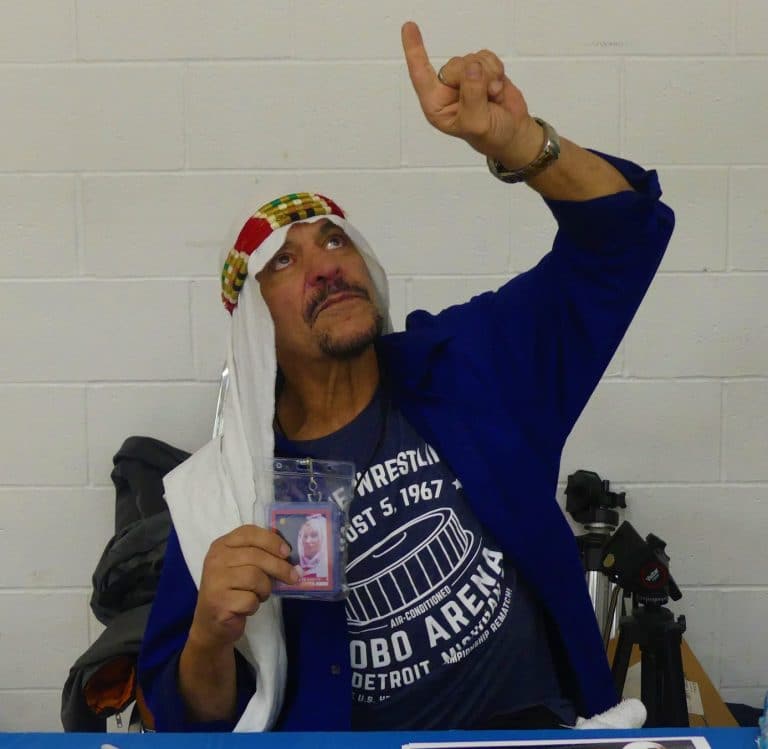Sabu, born Terry Michael Brunk, was a force of nature in a ring soaked with passion, risk, and raw emotion. Known for pushing his body to the edge and never flinching in the face of danger, he carved out a unique space in the world of professional wrestling. On May 11, 2025, the wrestling community was shaken by the news of his passing at age 60, less than 2 weeks after his final match. As tributes pour in, fans and fellow wrestlers reflect on a career that was as fearless as it was unforgettable.
The Man Behind the Mayhem
Sabu’s wrestling journey began under the shadow of greatness. His uncle, “The Sheik”, was a trailblazer in hardcore wrestling and mentored the eager Terry from a young age. Debuting in 1985, Sabu was already destined to defy expectations. What set him apart was an unrelenting commitment to a high-risk, no-holds-barred wrestling style. He walked into the ring ready to destroy and be destroyed. Chairs, tables, and barbed wire were tools of his expression.
By the 1990s, Sabu found his spiritual home in Extreme Championship Wrestling (ECW), a promotion that matched his own renegade energy. In ECW, he earned the nickname “Suicidal, Homicidal, Genocidal, Death-Defying Maniac”, and it was no exaggeration. His triple-jump moonsaults and death-defying dives made him a legend. He was twice crowned ECW World Heavyweight Champion, a testament to both his popularity and his in-ring skill, which often got overshadowed by his risk tolerance.
Sabu’s reach extended beyond ECW. He competed in New Japan Pro-Wrestling, WCW, TNA, and WWE, although his stint in the latter was short-lived. WWE struggled to tame his style. He never softened his edge for television. That was the paradox of Sabu: impossible to manage, yet impossible to ignore. His matches were chaotic and visceral, leaving audiences breathless and promoters worried. He never changed, even when the industry around him did.
Outside the spotlight, Sabu’s life bore scars of his profession. He experienced personal loss, notably the passing of his partner Melissa Coates in 2021. Still, he pressed on, appearing in independent promotions and mentoring young wrestlers. His final match took place on April 18, 2025, at Joey Janela’s Spring Break 9. He left the ring on his own terms, with fans chanting his name one last time.
A Legacy Paved in Blood and Bravery
The word “hardcore” gets thrown around often, but few embodied it like Sabu. He brought a unique combination of technical ability and unhinged chaos to his matches. He was not just throwing himself off ropes and ladders for show; it was a statement. He believed pain was part of the art form. And in doing so, he redefined what wrestling could be. Each match was a promise: this will hurt, but you will not forget it.
Sabu’s influence on the wrestling world is far-reaching. Wrestlers like Jon Moxley, CM Punk, and countless others credit him for showing them the value of authenticity and risk. He did not follow scripts or trends; he bulldozed his own path. His tape-wrapped fists and scarred body told stories that no promo ever could. He was not flashy in the mainstream sense, but he had charisma that burned like wildfire.
Despite his notoriety, Sabu remained humble. He rarely sought the limelight outside the ring. His interviews were honest, sometimes awkward, but always real. He did not act a character; Sabu was Sabu. And that earned him the respect of purists and rebels alike. Wrestling was a calling for him, a way of life forged in steel chairs and adrenaline.
His death marks the end of a brutal, beautiful chapter in wrestling history. Yet his legacy lives on in every risk-taker, every independent show where wrestlers put their bodies on the line, and every fan who ever gasped watching him leap from the top rope. Sabu tore wrestling open and left pieces of himself behind for us to remember.
Conclusion
Sabu’s journey was about freedom. The kind of freedom that only comes when you are willing to break every rule, take every risk, and bleed for what you believe in. His passing is a gut-punch to those who admired his passion and fearless commitment to wrestling. But Sabu was never meant to fade away quietly. He went out the way he lived: defiant, intense, and unforgettable. As fans and wrestlers honor him, one thing is certain: the legacy of Sabu will never be replicated. It can only be remembered with awe, respect, and a little bit of guaranteed pain.








